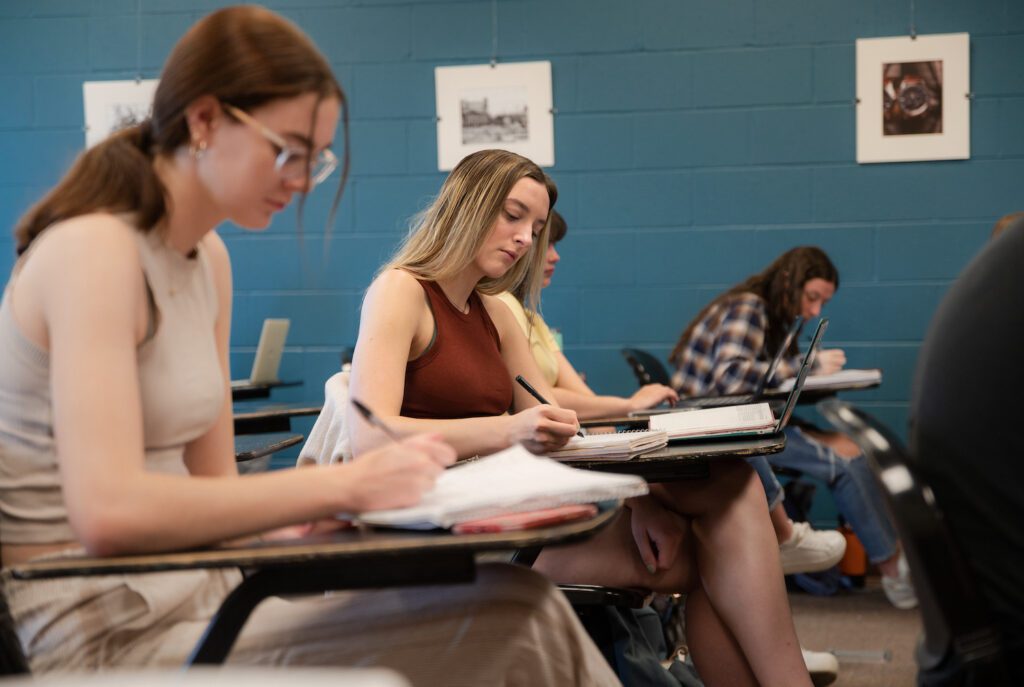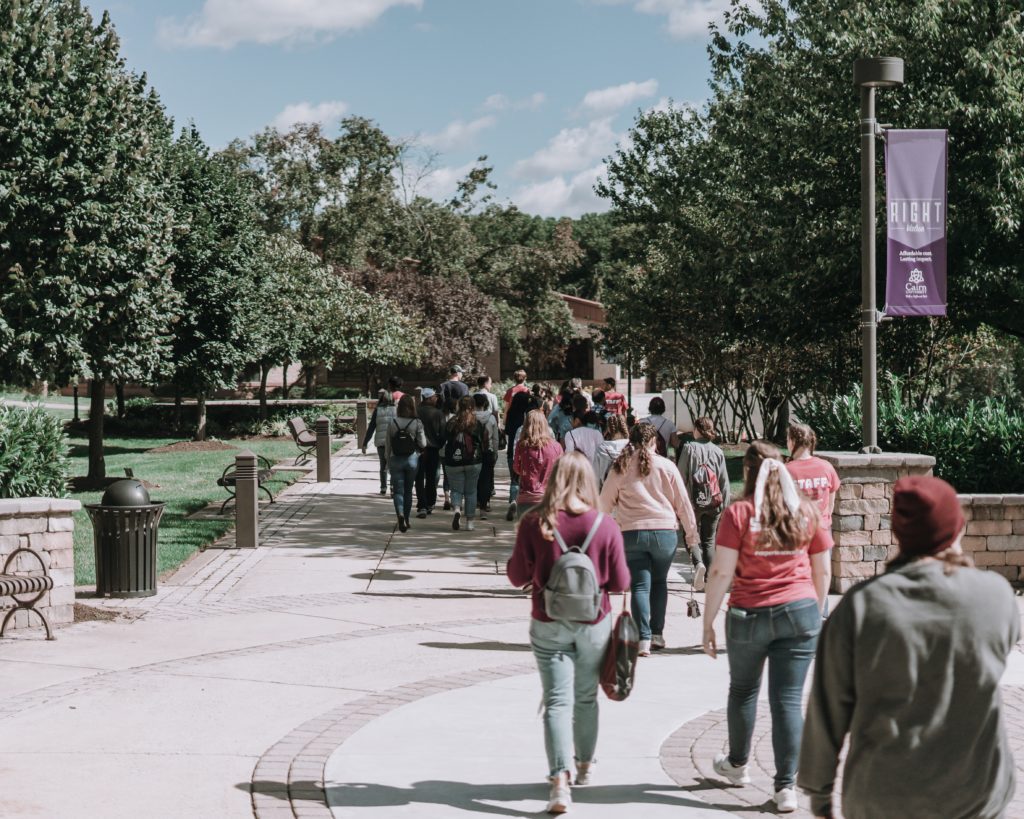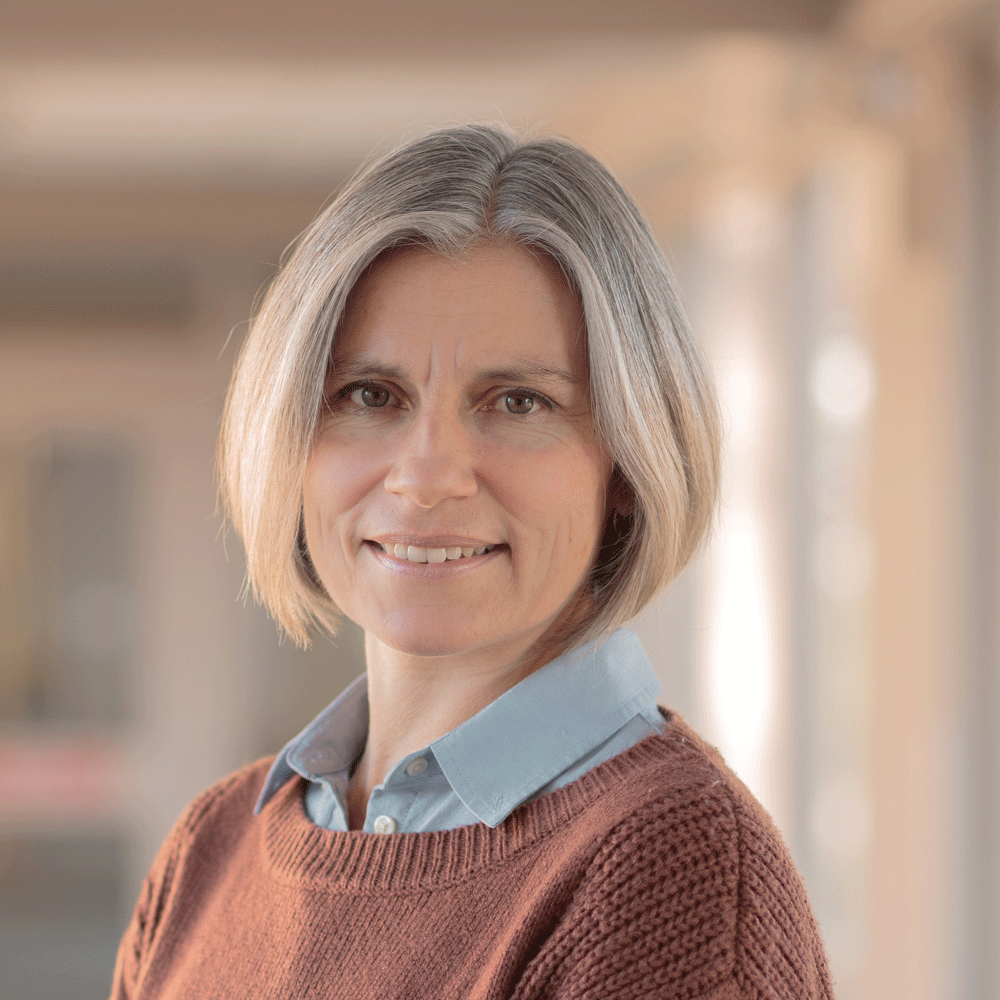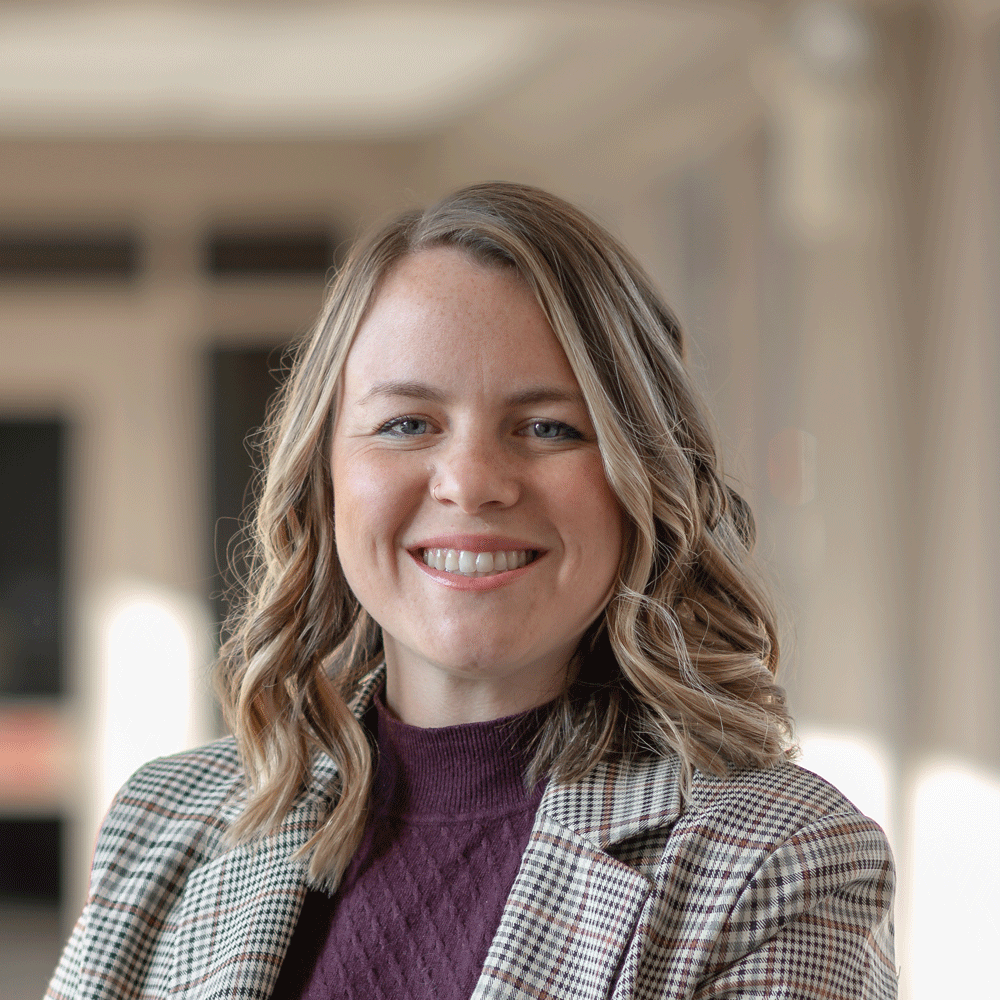Liberal Arts (BA)
Build a biblically based perspective on critical thinking, a broad base of interdisciplinary knowledge, and an engagement with modern culture.




Why a Liberal Arts (BA) Degree?
The search for truth and the ability to think across the disciplines is a major reason to pursue a degree in the liberal arts (mathematics and science, history and literature, philosophy, fine arts, and social sciences) because they provide us with ways to discover truth in the world. Fitted together with theological reflection on God’s Word, these disciplines enable us to formulate a robust understanding of God, the world, and ourselves. The breadth of study provides knowledge and background that are often left underdeveloped in other programs, helping the liberal arts graduate thrive in a wide variety of fields.
Liberal Arts (BA) at Cairn
Biblical Integration
Navigate diverse studies at a University that will strengthen your faith.
Career Preparation
Identify and articulate connections across multiple academic disciplines (great preparation for graduate school!).
Personalized Education
Customize your education through the addition of minors in other disciplines.
Experienced Faculty
Learn from professors who have varied literary interests and specialized concentrations.
Academic Opportunity
Prepare a final thesis paper or project on a topic of personal interest that can be shared with prospective graduate schools.
Honors Program
Join the Honors Program and dive deeper into a personal topic of interest.
more Details
Get an inside look at our Liberal Arts Program
There are over 70 unique programs at Cairn to choose from! Not sure if this is the best program for you? Here are some more details to help you decide.
Required Credits: 120
Curriculum Highlights:
- POL 101 US Government & Civics
- COM 111 Intro to Communications
- PSY 101 General Psychology
- SOC 202 Sociocultural Studies
- PHI 432 Philosophy
Graduate School in a concentrated discipline
Intelligence Analyst
Communications Specialist
Social services human relations officer
Publicist
Museum curator


Connect With Us
An Affordable Education
While the cost of a Cairn University education is competitive with similar institutions, we realize you may need financial assistance to take this journey. You are not alone. 97% of our full-time undergraduate students receive some form of financial assistance.
Meet Our Faculty


Charlotte Gleason
Chair, Humanities department
After graduating from Cairn University in 2000, Charlotte taught high school English in public schools both in Pennsylvania and New York. Her high school students inspired her to reconsider the place of adolescent literature in the classroom, and in 2006 she completed her thesis on how to integrate both the classics and YA literature in the classroom.
The birth of her first son led her to pursue higher education, and in 2007 she accepted a position as a part-time faculty member at Cairn University. During the last two decades, Charlotte has taught in a variety of classrooms and developed curriculum for private Christian schools and home school families, including her own. Recently, Charlotte transitioned to a full-time role at Cairn. She teaches a variety of literature, composition, and education courses and serves as the Chair of the Humanities Department in the School of Liberal Arts and Sciences.


Victoria Bradley Aquilone
Assistant Professor, School of Liberal Arts and Sciences
Victoria (Tori) Aquilone has always loved learning. She started attending Cairn for her undergraduate degrees in social studies education and Bible while she was a senior in high school. Her studies took her to graduate school where she has spent two degrees—a master’s degree in liberal studies from Villanova University and the better part of a PhD in English from the University of Delaware—studying human relationships with the natural environment in the context of contemporary American literature.
At the forefront of Tori’s academic work is the God of the Bible, whose general revelation of Himself in creation, namely His “invisible attributes” of “eternal power and divine nature” (Romans 1:20), drives her desire to learn about and care for that very creation, as well as study literary works that celebrate it. In particular, Tori’s work engages sustainable agriculture, tree community, and plant-thinking. Even with such rich scholarly studies, Tori’s heart is in the classroom and thoroughly enjoys teaching English Composition, Literature and Arts in Historical Context I & II, and other literature courses.
